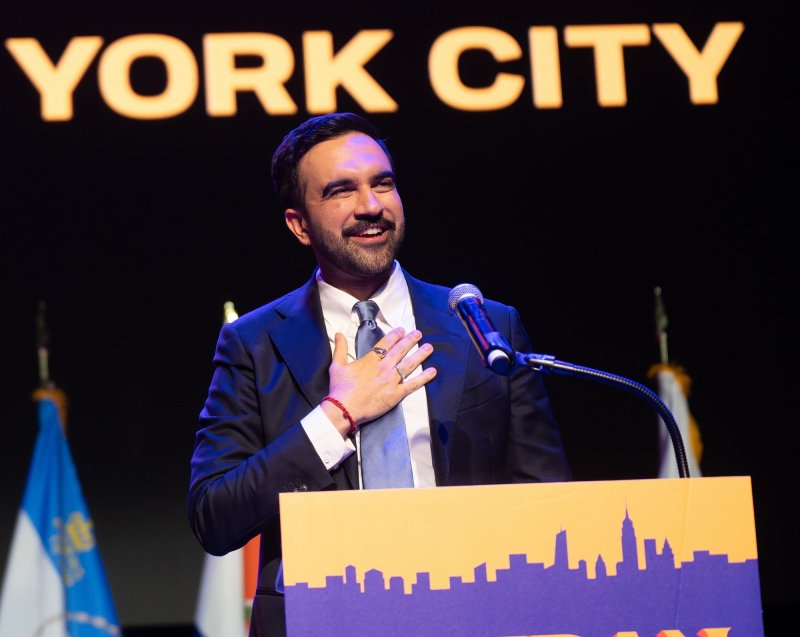Originally Published April 10, 2019
https://www.queensjewishlink.com/index.php/local/26-community-corner/243-teach-nys-scores-victory-with-passing-of-state-budget
On Tuesday, March 12, the New York branch of the Teach Coalition, Teach NYS, held its annual Mission to Albany to lobby the New York State Senate and Assembly. Hundreds of students, faculty, and volunteers from yeshivos, day schools, and neighborhoods across the state traveled to the Capitol to meet with legislators. This past week, those lobbying efforts paid off with increased funding from the state for non-public schools to be reimbursed for their STEM teachers, security costs, Comprehensive Attendance Policy, and Mandated Services.
I was among the hundreds of attendees at the Mission to Albany, and had the privilege to speak with members of the Assembly and Senate and their staffs. Two years ago, the New York State Legislature passed a law that allowed non-public schools to be reimbursed for their STEM teachers. The first year funding was $5 million. In the second year, it increased to $15 million, and this newly passed budget increased the funding even further to $30 million.
I had the opportunity to speak with Maury Litwack, the Executive Director of Teach NYS, to discuss this budgetary victory, the advocacy group, and the steps in the future.
Moshe Hill: [The governor’s budget, which was released prior to our lobbying trip, had the increase from $15 million to $20 million] Do you know who or how it got from 20 to 30?
Maury Litwack: Well, I mean, I think it helps us; it helps us that this is the first time in the program that the Assembly, the Senate, and the Governor all had it in their respective budgets. And I think that’s a big deal. I mean, it was, they each had increases in their respective budgets. The Assembly had it at $25 million and the Senate had it at $30 million. So, I think the fact that we had all three of the decision-making bodies supporting increases in the program really helps to get it to that finish line of a 100-percent increase.
Okay. Now it’s probably directly related… to the lobbying.
Yeah, this is directly related to members of the community being, you know, very active and engaged and not just coming to Albany, but you know, hosting politicians in their schools. We had probably about 20 of those and people going to their schools and bringing politicians there to the yeshivos and day schools. You know, we had moms and daughters going, they had special STEM mother-daughter lobbying day in Brooklyn. So, you know, a lot of these things all add up. Some 5,000 letters went off from our community. A lot of things all add up to, you know, really understanding that we need these increases, and it was important for our kids.
What do you think now that we have this legislative victory where you got $30 million, but what do you think is the next step? What’s their next move going forward?
I think the next move for us is to continue to increase this program. I mean, the program is not close to being fully funded, and I think that there will be more and more demand for this program, and it’s going to require more and more funding. So for us, I think it’s an incredible victory that we were able to increase as much as we are, and you get to $30 million, that’s serious money for our schools. But at the end of the day, we have a ways to go. I mean, we have to get this program fully paid for.
What is fully funded – what’s the number you’re looking for?
Well, we know at least this year that the applications for this program were $91 million. Back to us, you know, and I think it could be even higher next year. That’s how we look at this. We look at it as a big victory, but we’re not fully paid for. We want to see the state invest fully in this program.
What is the timeline really for, for [these reimbursements] to be reflected on tuition by lowering [tuition] or saying, “Hey, we would have been increased if it hadn’t been for this. But now we won’t.”
From our perspective, one of the things that came out this year with a number of schools said that government funding was, you know, between four and seven percent of their budgets. And for us that was a great recognition of the fact that this funding not only goes to the schools’ bottom line, but also goes into the… it goes into the safety. It goes into the end of the educational product. It goes into all these different things that they do. So for us, that was a big victory. But as I’ve always said, long-term on these things. We’ve seen schools announced that we can stay where it’s at. We’ve seen schools announced that they’ve reduced the per people security fee because we got security funding, but we see schools that are going to increase tuition, regardless of the funding that comes in. That’s not something that we control or dictate to schools. Our perspective is simply that if we get them up, they at least create a point where the schools can start to, you know, make those considerations about whether or not they’re going to invest it back into the school, whether or not that’s money that’s going to affect the tuition bottom line or impact the increase in tuition, etc. So that’s how we think about that as an organization.
I was talking to somebody today and he said, why can’t we get school vouchers in this state? Can you explain the benefits and drawbacks between this program and school vouchers?
Well, school vouchers are never going to happen in the State of New York. It’s a blue state, and school vouchers are perceived as an anathema to everyone who cares about public education. So it’s not going to happen in the state, in a blue state like New York – a blue Democratic state – because it’s essentially perceived as… taking money out from the public school system and giving it to the private school system. Now, I wouldn’t agree with that assessment, but that being said, that’s what it is politically. And I’ve always said politically: Vouchers are not going to happen in New York. I also have always said that vouchers are income-based and so they’ve always been – not always, but for the most part are income-based. And when you look at vouchers and states to get them, you know, oftentimes you’re making 200 percent above the federal poverty level or 300 percent above the federal poverty level. And that’s, you know, a parent, a family can be making $100,000 and not qualify for vouchers. So, you know, when our community says it and often brings it up, I think it’s from a fundamental lack of understanding about the politics in New York and of what the reality of what these vouchers can actually do for the totality of the schools. We try never to advocate for things that are income-based, because we understand that the tuition crisis in our community affects people. [This crisis] affects people who are making $200,000, $300,000… in fact impacts much more than the traditional understanding of low-income.
Is anything else on your legislative agenda?
We’ll look now at our agenda and going to turn to other regions. So I mean we’re going to be looking to the City, we’re going to be looking to Nassau County, we’re going to be looking to the local areas, as well. In addition to the fact that it’s two more months of a session, this is the end of the budget, but there’s two more months of legislative session. When we look at local and state legislatures and see what we can do on all fronts there.
Oh, so you’re trying to do some stuff in like Nassau County specifically, or like the Town of Hempstead or something like that.
Or New York City. We look at all these opportunities in addition to the Albany budget, as well.
And what could you do budget-wise or actually changing [laws]?
We had a long history. Teach NYS is the New York division of the Teach Coalition. We have six other states that we operate in. We have a long history of working on things in the county, state, and local level. And for us, you know, it shouldn’t just be Albany that’s investing in this; it should be all levels of government.
Speaking of which, as you said, are you doing anything federally at this point?
Yeah, I mean, there’s always been a federal effort. It’s done under the Orthodox Union. OU Advocacy umbrella. And, you know, that’s also extraordinarily important. But I would say that’s a two-year process as opposed to what we’re looking at in the next month, two months.
You can follow Moshe Hill on Twitter @TheMoHill.
By Moshe Hill


